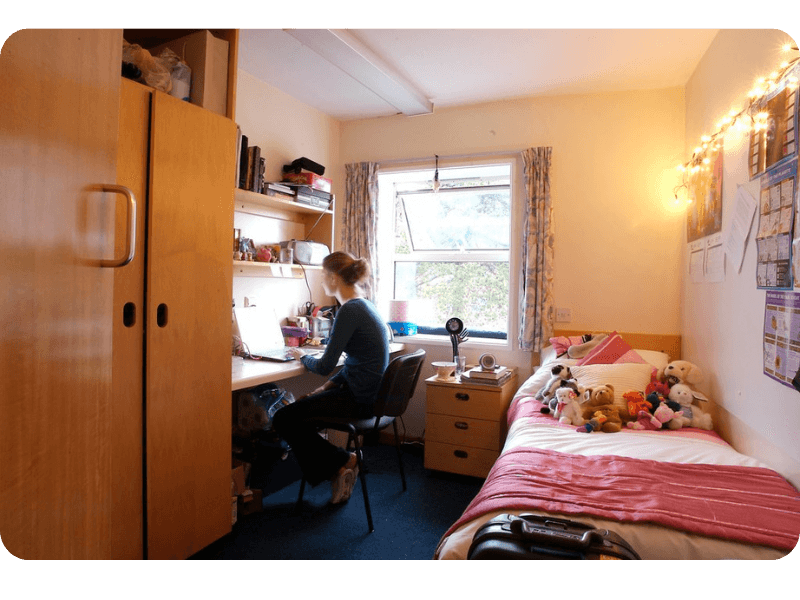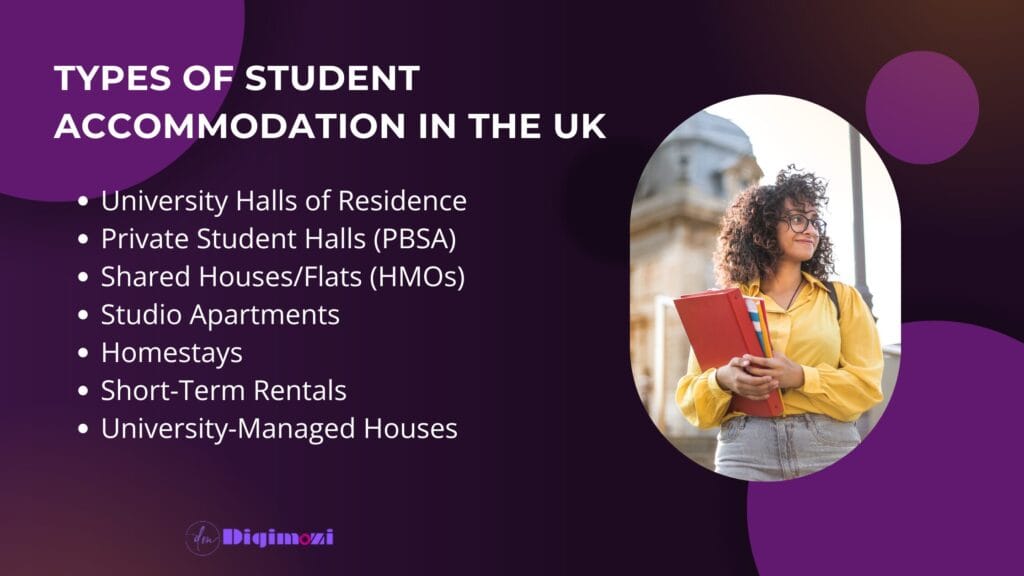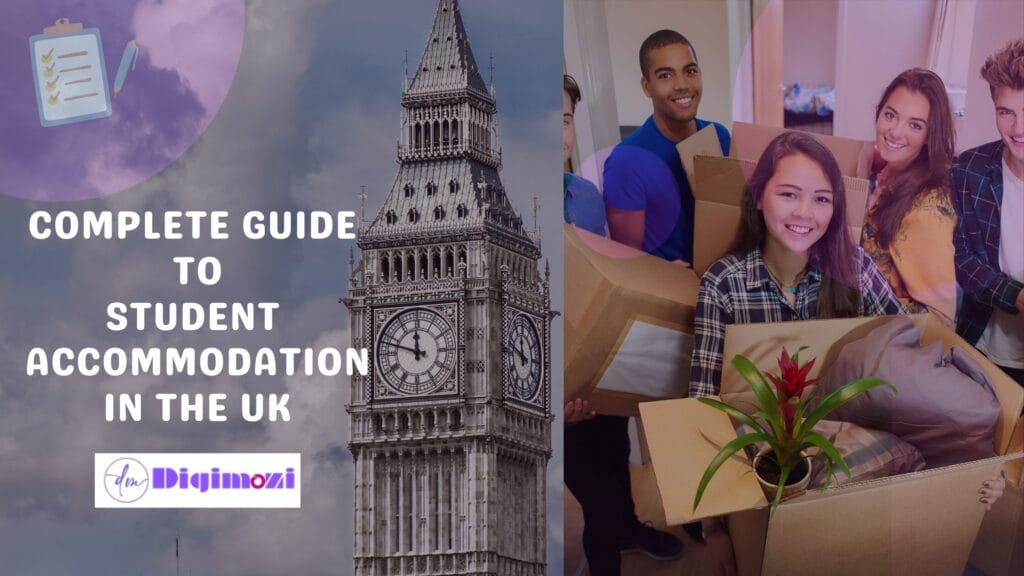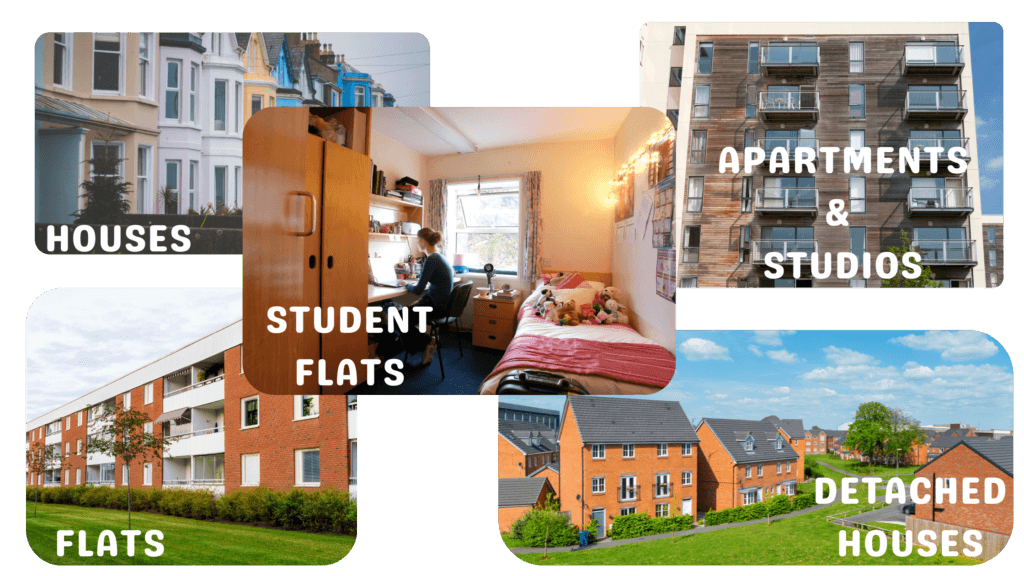Finding the perfect student accommodation in the UK can make or break your university experience. With over 2.3 million students enrolled in UK universities as of 2025, the competition for quality, affordable housing has never been fiercer.
Whether you’re heading to the prestigious spires of Oxford, the vibrant streets of Manchester, or the historic charm of Edinburgh, this comprehensive guide will help you navigate the complex world of student accommodation across the UK’s top university cities.
This city guide for Student Accommodation in the UK draws from extensive research, current market data, and insights from accommodation officers at leading universities to provide you with everything you need to secure your ideal student home for the 2025-26 academic year.
1. London: The Ultimate City Guide for Student Accommodation in the UK
City Overview for Students
London remains the world’s top student city, home to prestigious institutions including Imperial College London, University College London (UCL), King’s College London, and the London School of Economics (LSE). With over 400,000 students calling London home, the city offers unparalleled opportunities but comes with premium accommodation costs.

Key Statistics (2025):
- Student population: 400,000+
- Average weekly rent: £200-350
- Transport: Comprehensive tube, bus, and rail network
- Student discount: 30% off transport with an 18+ Student Oyster Card
The city’s diversity, cultural richness, and career opportunities make it worth the investment. From world-class museums with free student entry to countless internship opportunities, London provides an education beyond the classroom.
Best Areas for Student Living in London
Zone 2 Areas (Recommended)
Bethnal Green
- Distance to universities: 20-30 minutes to central London universities
- Average rent: £180-250/week
- Transport: Central and Hammersmith & City lines
- Character: Trendy area with great nightlife, close to Shoreditch
- Student population: High, with many purpose-built accommodations
New Cross
- Distance to universities: 25 minutes to central London
- Average rent: £150-220/week
- Transport: Overground services to London Bridge
- Character: Home to Goldsmiths University, a vibrant arts scene
- Student population: Very high, student-friendly local businesses
King’s Cross
- Distance to universities: Walking distance to UCL, short tube ride to others
- Average rent: £220-320/week
- Transport: Major transport hub with multiple lines
- Character: Recently regenerated area with modern developments
- Amenities: Shopping, restaurants, and the beautiful King’s Cross development
Zone 3-4 Areas (Budget-Friendly)
Stratford
- Distance to universities: 30-40 minutes to central London
- Average rent: £140-200/week
- Transport: Central, Jubilee lines, and DLR
- Benefits: Olympic Park nearby, significant regeneration, lower costs
Budget Planning and Costs in London
Comprehensive Cost Breakdown (2025):
Accommodation Costs:
- University halls: £150-280/week (£6,000-11,200/year)
- Private halls: £200-400/week (£8,000-16,000/year)
- Shared housing: £120-250/week + £30-50/week bills
- Studios: £250-450/week (£10,000-18,000/year)
Additional Costs:
- Council tax: Usually exempt for full-time students
- Contents insurance: £30-60/year
- Internet: £20-30/month (often included in halls)
- Deposit: Usually 1-6 weeks’ rent
- Agency fees: £200-500 (being phased out)
Money-Saving Tips:
- Apply for university accommodation early for guaranteed cheaper options
- Consider Zone 3-4 areas for significant savings
- Look for all-inclusive rent deals
- Share with friends to reduce per-person costs
2. Manchester: The Student Capital of the North
City Overview for Students
Manchester consistently ranks as one of the UK’s best student cities, home to the University of Manchester, Manchester Metropolitan University, and several smaller institutions. With over 100,000 students, the city offers exceptional value for money compared to London while maintaining a vibrant cultural scene.

Key Statistics (2025):
- Student population: 100,000+
- Average weekly rent: £90-180
- Transport: Extensive bus network, Metrolink tram system
- Student life: Over 300 bars and clubs, strong music scene
The city’s industrial heritage, coupled with modern developments, creates a unique atmosphere. Manchester’s reputation for music, sport (home to Manchester United and Manchester City), and nightlife makes it a top choice for students seeking an authentic British university experience.
Best Areas for Student Living in Manchester
Fallowfield
- Character: The heart of Manchester student life
- Distance to University of Manchester: 3 miles (15-20 minutes by bus)
- Average rent: £80-140/week
- Student population: Extremely high (80%+ students)
- Amenities: Numerous student bars, takeaways, and shops
- Transport: Regular bus services, cycle-friendly
Withington
- Character: Quieter alternative to Fallowfield
- Distance to universities: 4 miles from city center
- Average rent: £85-150/week
- Student population: High but more mixed community
- Benefits: Good value, family-friendly area, excellent transport links
Northern Quarter
- Character: Trendy, artistic area in city center
- Distance to universities: Walking distance to MMU, short journey to UoM
- Average rent: £120-200/week
- Student population: Mixed with young professionals
- Highlights: Independent shops, music venues, street art
Rusholme
- Character: Diverse area known as the “Curry Mile”
- Distance to universities: 2 miles from the University of Manchester
- Average rent: £70-130/week
- Benefits: Affordable, great international food, good transport
3. Edinburgh: Scotland’s Academic Jewel
City Overview for Students
Edinburgh, Scotland’s capital, combines historic charm with modern student life. Home to the University of Edinburgh (Russell Group) and Edinburgh Napier University, the city attracts students from around the world with its stunning architecture, cultural festivals, and academic reputation.

Key Statistics (2025):
- Student population: 60,000+
- Average weekly rent: £100-200
- Transport: Excellent bus network, walkable city center
- Cultural highlights: Edinburgh Festival, historic Old Town and New Town
The city’s UNESCO World Heritage sites, including the Old Town and New Town, provide a stunning backdrop for student life. Edinburgh’s position as a financial center also offers excellent internship and graduate opportunities.
Best Areas for Student Living in Edinburgh
Marchmont
- Character: Traditional student area with Victorian tenements
- Distance to the University of Edinburgh: 15-minute walk to the main campus
- Average rent: £90-150/week
- Student population: Very high (70 %+ students)
- Amenities: The Meadows park is nearby, student-friendly shops and cafes
- Housing type: Mainly shared flats in converted Victorian buildings
Newington
- Character: Quieter residential area popular with students
- Distance to universities: 20-minute walk to University of Edinburgh
- Average rent: £85-140/week
- Benefits: Good value, residential feel, excellent bus connections
- Popular with: Postgraduate students and those seeking quieter environment
Grassmarket
- Character: Historic area in the heart of Old Town
- Distance to universities: Walking distance to most university buildings
- Average rent: £120-200/week
- Highlights: Historic pubs, tourist attractions, vibrant nightlife
- Considerations: Can be noisy due to nightlife and tourism
Leith
- Transport: Regular bus services to the city center
- Character: Up-and-coming waterfront area
- Distance to universities: 25-30 minutes by bus
- Average rent: £80-130/week
- Benefits: Great value, young professional area, waterfront location
4. Birmingham: England’s Second City
City Overview for Students
Birmingham, the UK’s second-largest city, hosts the University of Birmingham, Birmingham City University, and Aston University. With over 80,000 students, Birmingham offers urban excitement with more affordable living costs than London.

Key Statistics (2025):
- Student population: 80,000+
- Average weekly rent: £85-160
- Transport: Extensive bus network, city center tram system
- Cultural scene: Vibrant nightlife, diverse food scene, major shopping centers
Birmingham’s central location makes it ideal for exploring the rest of the UK, while its diverse population and cultural offerings provide a rich student experience.
Best Areas for Student Living in Birmingham
Selly Oak
- Character: The main student area, dominated by University of Birmingham students
- Distance to University of Birmingham: Adjacent to campus
- Average rent: £80-140/week
- Student population: Extremely high (90 %+ students)
- Amenities: Student union, shops, restaurants, all geared toward students
- Housing: Mix of purpose-built accommodation and converted houses
Moseley
- Character: Bohemian area with independent shops and cafes
- Distance to universities: 10-15 minutes to the University of Birmingham
- Average rent: £90-150/week
- Population: Mix of students, young professionals, and artists
- Highlights: Moseley Folk Festival, vintage shops, diverse dining
City Center
- Character: Urban living with modern developments
- Distance to universities: 15-30 minutes, depending on campus
- Average rent: £110-180/week
- Benefits: Shopping, nightlife, transport links
- Best for: Birmingham City University and Aston University students
Harborne
- Character: Suburban feel with good amenities
- Distance to the University of Birmingham: 10 minutes by bus
- Average rent: £85-145/week
- Population: Mix of students and families
- Benefits: Quieter than Selly Oak, good local amenities
5. Oxford: Academic Excellence and Historic Charm
City Overview for Students
Oxford, home to the world-famous University of Oxford and Oxford Brookes University, combines academic prestige with historic beauty. The city’s “dreaming spires” and collegiate system create a unique student experience.

Key Statistics (2025):
- Student population: 45,000+
- Average weekly rent: £120-220
- Transport: Good bus network, very cycle-friendly
- Character: Historic center, numerous museums and libraries
Oxford’s tutorial system and collegiate structure mean accommodation experiences differ significantly from other UK universities, with many students living in college accommodation.
Best Areas for Student Living in Oxford
Headington
- Character: Main student area, home to Oxford Brookes campus
- Distance to city center: 20 minutes by bus
- Average rent: £100-170/week
- Student population: Very high
- Amenities: Shopping center, restaurants, student-focused services
- Benefits: Purpose-built student accommodation available
Cowley
- Character: Diverse area with good transport links
- Distance to universities: 15-20 minutes to city center
- Average rent: £90-150/week
- Benefits: More affordable, good bus connections, diverse community
- Housing: Mix of shared houses and purpose-built accommodation
Jericho
- Character: Trendy area close to city center
- Distance to universities: Walking/cycling distance to most colleges
- Average rent: £130-200/week
- Population: Mix of students, academics, and young professionals
- Highlights: Independent shops, cafes, proximity to University departments
Conclusion and Next Steps
Finding the right student accommodation is crucial for your university success and overall experience. The UK offers incredible diversity in both educational opportunities and living experiences, from the historic charm of Oxford and Cambridge to the vibrant urban energy of Manchester and Birmingham.
Your Action Plan
Immediate Steps (If Starting University This Year):
- Contact your university accommodation office immediately – even if applications are closed, cancellations occur
- Check verified accommodation websites daily – good properties move quickly
- Prepare your documentation – references, guarantor information, deposit funds
- Be flexible with your requirements – perfect accommodation may not be available, but good options exist
Planning Ahead (For Future Academic Years):
- Start researching in October – give yourself maximum time and choice
- Visit university open days – see accommodation options in person
- Build a network – connect with current students for insider knowledge
- Create a realistic budget – include all costs, not just rent
If you’re planning to study in cities like Glasgow, Leeds, Nottingham, or Newcastle, finding the right place to live is just as important as choosing your university. Check out our student guide for accommodation to explore the best areas, typical rent costs, and tips for securing a good deal early.
Worried about rent eating into your budget? You’re not alone. Our guide to affordable student accommodation in the UK breaks down low-cost options, including shared houses, halls of residence, and private lets that won’t break the bank, especially in top student cities.
Not sure what kind of housing suits your lifestyle best? Whether you prefer the social buzz of uni halls or the independence of private rentals, our article on the types of student accommodation available in the UK will help you make an informed choice before you move.
Key Takeaways
- Apply early – The best accommodations go to early applicants
- Budget realistically – Include all living costs, not just accommodation
- Prioritize safety – Verify all properties and landlords before committing
- Stay flexible – Your ideal accommodation might not be available, but alternatives can be just as good
- Use support services – Universities and organizations are there to help
Remember, your accommodation choice will significantly impact your university experience. Take time to research, ask questions, and make informed decisions. The effort you put in now will pay dividends throughout your studies.
For personalized advice or assistance with your accommodation search, don’t hesitate to contact your university’s accommodation services or student union. They have extensive experience helping students find suitable housing and can provide valuable local insights.
For official guidance on living and studying in the UK, the UKCISA website and GOV.UK’s student guides are excellent starting points.
Good luck with your accommodation search and your university journey!
Disclaimer: Rental prices and availability are subject to change. Always verify current information with official sources. This guide is for informational purposes and does not constitute professional advice.









